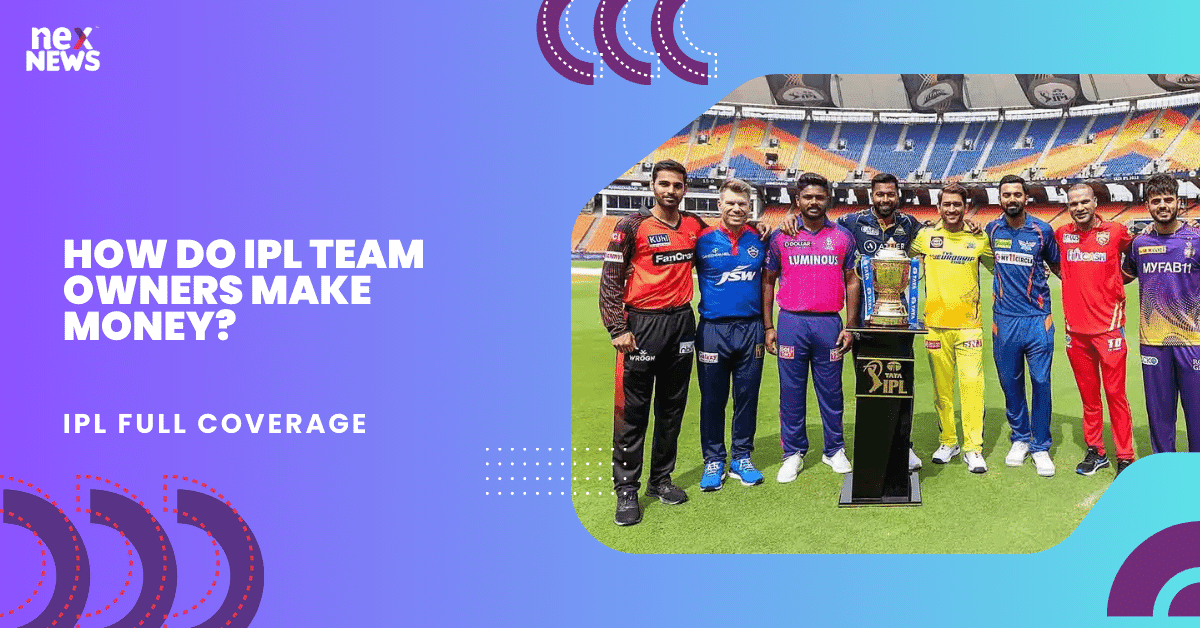Ownership Structure: Exploring the ownership patterns and structures of IPL teams
The ownership patterns and structures of IPL teams vary greatly across the league. Each team is owned by a combination of individuals, companies, and consortiums, often with multiple stakeholders involved. Some teams have a single majority owner who holds a controlling stake, while others have a more distributed ownership structure with equal or near-equal ownership shares among multiple stakeholders. The diversity in ownership models reflects the different strategies and objectives of team owners in the IPL.
One common ownership structure in the IPL is the presence of celebrity owners. Several teams have notable figures from the entertainment industry, sports industry, or business world as their owners. These celebrity owners not only bring their star power and influence to the team, but they also attract significant attention and generate additional sponsorship and branding opportunities for the franchises. The involvement of such high-profile owners adds a unique dimension to the IPL and further enhances the league's appeal beyond just the sport itself.
Sponsorship Deals: Analyzing the significant role of sponsorship deals in generating revenue for IPL team owners
Sponsorship deals play a crucial role in the financial success of IPL team owners. These deals involve partnerships with various companies and brands, who provide financial support in exchange for advertising opportunities. The revenue generated through sponsorship deals helps IPL team owners cover their team expenses, player salaries, and infrastructure costs.
The significance of sponsorship deals lies in their ability to generate substantial revenue for IPL teams. As the popularity of the league continues to soar, there is a high demand for sponsorships, resulting in lucrative deals for team owners. These deals not only provide financial stability but also allow teams to invest in the growth and development of their franchise. From jersey branding to stadium naming rights, these sponsorships create visible associations between brands and IPL teams, enhancing brand value and creating a win-win situation for both parties involved.
Broadcast Rights: Understanding the lucrative nature of broadcast rights and their impact on team owners' finances
Broadcast rights are a key revenue generator for IPL team owners, contributing significantly to their finances. The competition among broadcasters to secure the broadcasting rights for the IPL matches is fierce, resulting in astronomical bidding prices. The reason for this intense competition lies in the massive viewership and popularity of the tournament. With millions of cricket enthusiasts tuning in to watch their favorite teams and players in action, broadcasters have a vast potential audience to target, making the broadcast rights highly lucrative for team owners.
Securing the broadcast rights not only brings in substantial financial gains but also enhances the overall brand value of IPL teams. By showcasing matches on television and digital platforms, team owners are able to reach a wider audience and attract more sponsors. Moreover, with the advent of technology, fans from around the world can now follow the IPL matches live, further contributing to the global exposure and fanbase of the teams. As a result, the broadcast rights play a pivotal role in generating revenue for team owners and ensuring the financial stability and success of the IPL as a whole.
Merchandising and Licensing: Examining the revenue generated through merchandise sales and licensing agreements
Merchandising plays a crucial role in generating additional revenue for IPL team owners. Through strategic partnership with manufacturers and retailers, teams are able to sell a wide range of merchandise such as jerseys, caps, keychains, and other fan gear. These items not only help fans show support for their favorite teams, but also serve as a promotional tool for the IPL brand. Licensing agreements add another dimension to this revenue stream, allowing teams to extend their brand presence and generate income through third-party partnerships. By licensing their logos and trademarks for use on various products, IPL teams are able to reach a wider audience and capitalize on the popularity of the league.
In recent years, merchandise sales and licensing agreements have gained immense popularity due to the increasing enthusiasm of IPL fans. The demand for team-specific merchandise has skyrocketed, with fans eagerly purchasing items to showcase their loyalty and connection to their favorite team. The revenue generated from merchandise sales is not only significant in its own right, but also contributes to the overall financial health of the IPL teams. Licensing agreements further boost this revenue stream by opening up opportunities for teams to expand their merchandise offerings and tap into new markets. As a result, merchandising and licensing have become integral components of the IPL's revenue generation strategy, contributing to the league's continued success and growth.
Ticket Sales: Exploring the revenue streams from ticket sales, including season tickets and matchday sales
IPL teams rely heavily on ticket sales as a key revenue stream. Season tickets, which offer fans access to all the home matches of a team, contribute significant income. These tickets, priced at various tiers to accommodate different budgets, are especially popular among die-hard supporters who want to attend every match. Season tickets not only guarantee a dedicated fan base but also provide a stable source of income for team owners throughout the tournament.
In addition to season tickets, matchday sales also play a vital role in generating revenue for IPL teams. These tickets are sold for individual matches and allow fans to attend specific games of their choice. Matchday sales tend to fluctuate depending on various factors, such as the popularity of the teams playing, the venue, and the stage of the tournament. However, even if a team has a smaller fan base, matchday sales are often boosted by the inclusion of star players or highly anticipated match-ups, resulting in increased attendance and ticket revenue.


POST A COMMENT (0)
All Comments (0)
Replies (0)